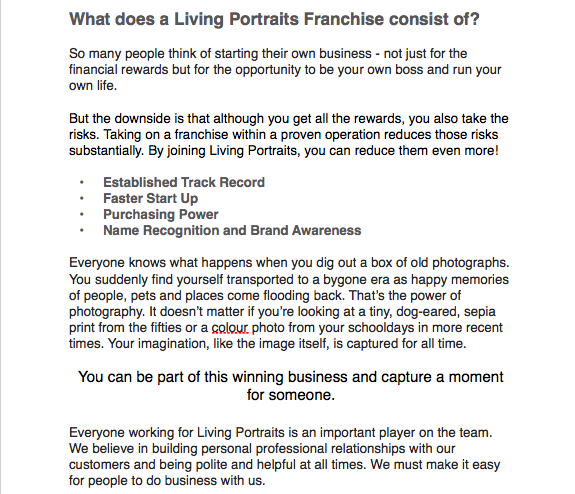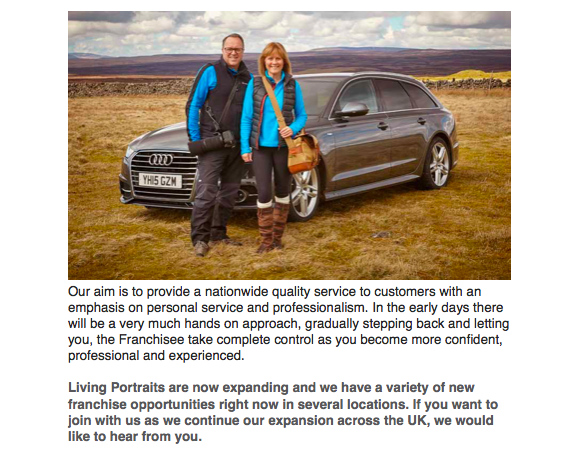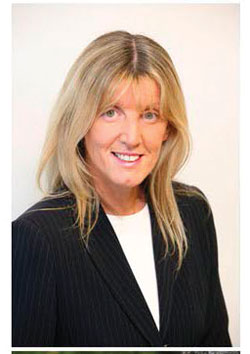U.S. President-elect Donald Trump’s name alone is often enough to anger many people – but most American small business owners are not among his critics.
Small business owners are not concerned that Trump has caused controversy with his comments on Muslims, Mexicans, blacks, women, immigrants and other groups – which will not be rehashed here. Based on polling data compiled by the People’s Pundit Daily and other organizations, small business owners favored Trump over Democratic candidate Hillary Clinton by a wide margin. In other words, small business owners strongly support his economic agenda.
That begs the question: What can small business owners, including franchisees, expect from Trump’s presidency?
Election win sparks more optimism
Simply put, small business owners and, in turn franchise operators, are looking to do better under Trump than they did with outgoing President Barack Obama.
Obvious proof came in a Wells Fargo report, released Dec. 8, which showed that small business owners had a post-election surge in optimism. According to the report, based on a survey of 602 small business owners from Nov. 11 to 17, the Wells-Fargo Small Business Index, which measures owners’ optimism, rose to 80 from 68 in July and 58 a year earlier. In fact, the 80 mark was the highest mark since the 83 registered in January 2008, when the Great Recession was just moving into high gear.
Furthermore, the Wells Fargo survey found that small business owners, which include franchisees, and in many cases franchisors, are boosting efforts to hire more workers. According to the survey results, a record 36 per cent plan to hire “a little or a lot” in the next 12 months, up from 21 per cent in July. As the Associated Press noted, these findings came after small business owners were reluctant to hire or expand in recent years.
Most small business owners believe that they will have more access to credit under Trump and slightly more than half of respondents think actions by Trump’s Republican administration will make their companies better off. The majority (61 per cent) are also confident that Trump will focus on issues important to them as business owners.
The Wells Fargo report also shows that a majority of small business owners – 58 per cent, up from 48 per cent in July – also expect their revenues to rise over the next year. In addition, 77 per cent, compared to 73 per cent in July, anticipate that their companies’ financial situation will be good between now and 2018.
“The latest overall Index score tells us that business owners are feeling positive about the future and have a renewed sense of confidence as they look to the year ahead,” said Mark Vitner, Managing Director and Senior Economist for Wells Fargo Securities, in a news release. “Not only do small business owners report that the operating environment for their businesses will be better in 2017 than it was in 2016, but business owners are anticipating growth for their businesses in the new year as more plan to increase their capital spending, add staff and apply for credit.”
Consumers have confidence in new president
Small business owners, particularly franchisees, want – and expect – the White House to provide consumers with hope for a strong economy (especially in the post-recession era). Such hope leads to increased consumer confidence – namely customers’ belief that they can afford to spend their discretionary income after meeting regular monthly expenses.
Although Trump has not taken office yet, consumers are showing more confidence than they did before the election. In December, the University of Michigan’s index of consumer sentiment rose to 98 from 93.8 in November. (The final November mark had risen after a preliminary reading of 91.6 reflected pre-election views.)
“The initial reading immediately after President-elect Donald J. Trump won the presidential election was a surge in confidence, a sentiment that continues several weeks after,” said economist Peter Curtin, the director of the University of Michigan survey, in a statement.
The December results came after findings for November showed a stark pre-election and post-election split with sentiment rising 8.2 points after the vote.
“The initial reaction of consumers to Trump’s victory was to express greater optimism about their personal finances as well as improved prospects for the national economy,” said economist Peter Curtin, the director of the University of Michigan survey, in a statement.
The survey results show that consumer optimism rose after the election. However, consumer expectations also jumped following Trump’s victory. The university reported that its index of consumer expectations reached 88.9 in early December – after an 8.4-point increase, to 85.2 from 76.8 after the election. According to Bloomberg, that increase was last exceeded in December 2011, and shows “households’ optimistic view on the outlook for the U.S. economy and their own pocketbooks.”
And, as Bloomberg’s Peter Coy noted, that “optimistic” description might have been an understatement because, based on the Michigan result, Americans are the most hopeful that they have been in more than a decade.
Americans’ income expectations have also rebounded since Trump won the election.
Implications for franchise operators
What do the aforementioned findings mean for franchise outlets?
Consumers appear likely to spend more money as Trump takes over the Oval Office. Based on that notion, existing franchise owners and potential franchisees have an impetus to open new franchise locations and expand existing operations, because they know that consumers are not planning to stay home and pinch pennies.
But as the University of Michigan’s Curtin suggested, consumer support for Trump should not be taken for granted.
“The upsurge in favorable economic prospects is not surprising given Trump’s populist policy views, and it was perhaps exaggerated by what most considered a surprising victory as well as by a widespread sense of relief that the election had finally ended,” stated Curtin. “To be sure, no surge in economic expectations can long be sustained without actual improvements in economic conditions. Presidential honeymoons represent a period in which the promise of gains holds sway over actual economic conditions. Presidential honeymoons, however, can quickly end if they are unaccompanied by prospects that economic conditions will actually improve in the future.”
Curtin believes that Trump “appears to” appreciate the importance of his first 100 days in office – meaning that he will implement change – and the key issue is whether his economic policies will resonate with the nation’s consumers.
If the University of Michigan’s forecast of a 2.5-per-cent increase in consumer spending holds true, Trump’s policies will definitely resonate.
Plans for deregulation cause delight
In addition to seeking greater consumer confidence, small business owners and, in turn, franchise operators, want Trump to deliver on his promise of more deregulation.
And, it appears that he will.
Trump has promised to scrap and replace the Affordable Care Act, the legislation behind Obamacare. With Republicans controlling both the House of Representatives and the Senate, he should have little trouble doing so. If he does follow through on his plan, as he is widely expected to, small business owners – including new and existing franchisees – are likely to utter a huge collective sigh of relief.
“Obamacare is causing a lot of pain amongst our business owners,” Karen Kerrigan, president and CEO of the Small Business and Entrepreneurship Council, told CNBC. “Costs (of health insurance coverage) were supposed to go down, not up. A surge in costs and lack of competition in the marketplace needs to be addressed, as does the complexity of the law. The employer mandate – not only costs of insurance, but complying with the new system – should be a priority.”
The employer mandate requires businesses with 50 or more workers to offer medical coverage or face penalties of up to $2,000 per worker per year.
Trump displayed his support for small business on his campaign website and made it clear that he is targeting what he calls over-regulation. In a meeting with New York Times reporters, editors and opinion columnists following his election victory, he said proposed reduced regulations are proving to be more popular than his proposed tax cuts for businesses of all sizes.
But make no mistake: Small businesses and, therefore, franchise operators, want Trump to implement tax cuts, too.
Tax cuts expected after inauguration
Promises of tax cuts, including tax reform, were heard often during Trump’s successful campaign, and they are expected to be addressed soon after his inauguration.
“Many small businesses are taxed as individuals on the owner’s 1040 (form) so the rates can be higher and deductions are limited or eliminated,” states Trump’s campaign website. “Payroll and (Federal Insurance Contributions Act) accounting and reporting can be very costly, and one mistake can lead the owner into great legal trouble.”
Such rhetoric would get many nods of agreement from small business owners, but it remains to be seen whether Trump will convert his words into action. In the meantime, Trump’s plans to reduce the number of tax brackets to three from seven and cut family and individual income taxes are also scoring big with small business owners, who also stand to gain personally in those areas.
But some critics contend that Trump’s tax cuts will not provide the advertised benefits for small business.
Dean Baker, co-director of the Center for Economic and Policy Research, in Washington, D.C., told Fortune that Trump’s tax reform will benefit big corporations and the rich more than small businesses.
“There is fairly broad bipartisan support for the idea of lowering the corporate income tax rate and getting rid of most of the loopholes,” Baker said. “The problem has been that all the loopholes have major lobbies. I can envision a scenario in which we get a bill that lowers rates and only gets rid of a few trivial loopholes.”
Rhonda Abrams, a small business owner and author of 19 books including Successful Business Plan: Secrets & Strategies, contends that Trump’s proposed small business tax cuts will not come to fruition.
“Your small business is almost certainly taxed on a ‘pass-through’ basis, meaning income is taxed as individual income, not corporate income,” Abrams wrote in USA Today. “Only ‘C’ corporations are likely to benefit from Trump’s cut. So big corporations and fewer than eight per cent of small companies would save on taxes. Good for your competitors.”
Critics doubt economic benefits
While criticizing the president-elect, Abrams also points to another key concern for small business owners – the economy as a whole.
“As a small-business owner, I know that nothing affects the health of my business – no specific policy or decision – as much as the health of the overall economy,” she wrote in the same USA Today piece. “Hundreds of business leaders, including billionaire investor Warren Buffett, HP’s Meg Whitman, Alphabet’s Eric Schmidt, Michael Bloomberg and the founders of Costco, Airbnb, Salesforce, Dish Network and many more, see Trump as a threat to the economic vitality of this country. That’s a risk most small-business owners shouldn’t want to take.”
However, many small business owners did take the risk – simply by voting for Trump. And, it is becoming increasingly evident that other American business sectors have confidence in him, too.
Investors banking on The Donald
Contrary to some pre-election prognostications, business owners are not pulling their money out and looking to invest anywhere but America.
All major indexes, including the Dow Jones Industrial Average, Standard & Poor’s 500 and Nasdaq have been hitting record highs on a repeat basis since the election. The Dow alone posted 14 record closes in the month after the election. Before Nov. 22, the Dow had not surpassed 19,000 in its 120-year history. As of this writing, the Dow is less than 100 points shy of 20,000.
These results were underpinned by investors’ confidence in a Trump presidency.
In another sign of business confidence in him and his policies, RBC put out a report listing 40 smaller and medium-sized firms that stand to gain from Trump’s presidency. And, the banking sector has tacitly supported Trump by making more capital available to businesses of all sizes – a situation that bodes well for new franchisees as they seek funds to help manage startup costs.
Minimum wage likely to cause friction
With the Republicans controlling Congress, Trump should have little trouble implementing most of the policies that apply to small business and franchising. But one issue – the federal minimum wage – could get thorny.
Trump’s choice of labor secretary, Andy Puzder, a franchising sector leader, has opposed the Obama administration’s efforts to increase the minimum wage to $10.10 per hour from the current $7.25 per hour. Puzder, CEO of CKE Restaurants, the company that franchises the Hardee’s and Carl’s Jr. fast-food outlets, and a board member of the International Franchise Association, has also strongly disagreed with a movement to boost the minimum to $15 per hour.
“Instead of creating a living wage, the fight for dramatic minimum-wage increases could leave millions with no wage at all,” he wrote in the Wall Street Journal in 2015.
Trump’s appointment of Puzder indicates that the new administration will not raise the minimum wage soon, but that stance will cause political friction because some states, including California and New York, along with cities like Seattle, have boosted their minimum wage levels beyond the federal mark.
Republicans in those jurisdictions and elsewhere will face considerable pressure to raise the bar and could suffer if Trump endorses a hard-line stance against doing so. Trump also knows that he might need to bend on the minimum wage if he wants to get other initiatives passed – because his own party can still block his efforts.
Of course, Democrats will also hammer Trump on the minimum wage, and he may need to avoid backlash to maintain his party’s grip on Congress during its next wave of elections in two years.
An inflexible stance on the minimum wage could also upset some small business owners. While some, particularly franchisees, want to toe the line on it in order to manage expenses, other operators want an increase so that employees will be happy and stay with their companies – and customers will have more purchasing power.
“We think it’s impossible to set a federal minimum wage,” Kerrigan of the Small Business and Entrepreneurship Council told CNBC.
Puzder will seek other employment-law changes
Regardless of what happens with the minimum wage, Trump’s rhetoric on Puzder’s appointment indicates that he wants him to impact small business in a big way.
“He will save small businesses from the crushing burdens of unnecessary regulations that are stunting job growth and suppressing wages,” Trump said in a statement.
You can bet that Puzder will seek new overtime pay rules. He has expressed strong opposition to the Obama administration’s large increase in the number of Americans eligible for overtime pay by including more salaried managers within the qualifying rules. Puzder has contended that the rule will hurt low-level managers trying to climb the economic ladder because employers will hold their hours in check to keep costs down.
Given Puzder’s franchising background, it is a given that he will strive to introduce policies that appeal to franchisors and franchisees alike.
The bottom line on Trump and small business
Some small business owners might dislike Trump’s murky stance on the federal minimum wage, but they will have few complaints otherwise.
The bottom line?
Most small business owners, including many franchise operators, believe that Donald Trump can, indeed, make America great again.
(Monte Stewart is a freelance journalist who writes about business, sports and other topics for several online and traditional print publications. He is a regular contributor to Franchise Chatter.)










